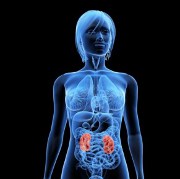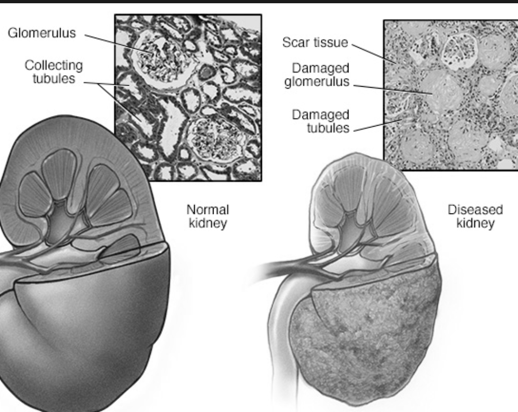 Photo: Getty Images
Photo: Getty Images
You have heard the stories: the Starbucks barista who donates one of her two healthy kidneys to a customer who might die without a kidney transplant. The woman from Phoenix featured on the Today show who found a kidney donor for her mom through setting up a Facebook page. It happens. And it makes news. What’s going on?
First, with an epidemic of people with diabetes and high blood pressure, kidneys are failing. Most all of us were born with two kidneys, but we only need one to live a healthy life. When both kidneys are failing many people can only look forward to a safety net of dialysis – many hours a week – and a reduced quality of life, many medications, and the real prospect of a shorter life. A transplant can be a much better course if there is a healthy organ available.
Traditionally, donated organs came from someone who died. It could be a young person who died in an accident. In more recent years doctor have been accepting kidneys from older people who died. A shortage still remains because the vast majority of us have not agreed to be organ donors. And even if we said yes and it was noted on our driver’s license (many states do that), our families, in times of sorrow, sometimes do not abide by our wishes. If we are dying and the transplant team is standing by to give the “gift of life” to others, someone in the family – and this happens every day – says no. Game over.
This is where a kidney donated from someone who is alive can make such a difference. The latest techniques make this safe for the donor and a life changing event for the recipient. You could say it’s life changing for the donor too – giving this gift to a relative or friend or even a stranger.
Recently I attended a major medical conference in Philadelphia for organ transplant professionals. I learned more about this during video interviews with two experts for PatientPower.info. One, a surgeon, explained the living donor kidney transplant process. Another explained how recipients can help make the transplant successful and lasting. You can find these at http://www.patientpower.info/video/advantages-of-living-donor-kidney-transplants
As we look forward, unfortunately, there will be more people who need a donated organ. Unless we can reverse the explosion in diabetes, unless we can bring down our blood pressure, unless we can lose weight and get in shape, more people will need a transplant and there won’t be enough healthy kidneys available. It could affect your friend or family member. But all of us could help make a big dent in the shortage of donor organs. Considering being a living donor and then, if called upon, actually doing it could be life changing, not just for them, but for you.
Edited by Alison Stanton




Add a Comment1 Comments
"but we only need one to live a healthy life"
This is completely untrue. A kidney is not a 'spare'. If so, there wouldn't be a trend toward 'nephron-sparing' surgery for those with renal tumors and otherwise. In other words, instead of taking the entire kidney, surgeons are moving toward only removing the disease-affected parts.
"The latest techniques make this safe for the donor"
This is also untrue. Safe, by clinical standards, means the risk endured in daily living, such as a hangnail. Under no circumstances is undergoing a major surgery to have a needed organ removed 'safe'.
I would never expect a transplant surgeon or facility to be truthful about living kidney donation. After all, they profit from doing transplants. But here are the facts:
According to OPTN, 4.4 living kidney donors die each year in the US within 12 months of surgery.
Many suffer debilitating complications: nerve damage, hernia, intestinal blockage, adrenal dysfunction, pancreatitis, chylous ascites, organ laceration, etc.
20-30% experience depression, anxiety, anger and PTSD yet not a single transplant ctr offers aftercare or support services.
There is NO long-term data on living donors' health and well-being. Identifying info wasn't collected until 1994 and no quality assurances are in place. OPTN's own LD data task force concluded that national data was incomplete and inadequate for analysis. NIH stated that at 20 years of good, comprehensive data was necessary to gauge the long-term effects of living donation on donors (which we don't have)
It's unfortunate that someone who has marketed themselves as a patient advocate would be so uninformed about living donation. Perhaps his research should extend past those who profit from living donor transplants.
www.livingdonor101.com
June 17, 2011 - 8:22amThis Comment